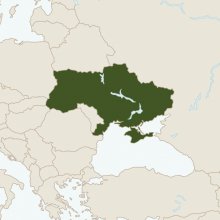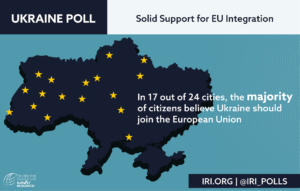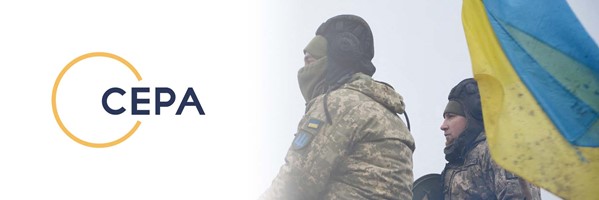Talks between US and Russian officials get underway in Geneva this week following concerns about a potential military escalation of Ukraine by Russian forces, notes the Center for European Policy Analysis (see below). Following a week of diplomacy, can the impending crisis be avoided?
“The war talk in Moscow may be a sort of psychological operation to soften up the West, frighten West Europeans, and divide Putin’s western adversaries so that a lesser Russian attack — seizing another slice of Ukraine rather than a full-scale invasion, or stationing Russian forces along the Polish frontier, or ‘mere’ cyber attacks and physical sabotage in Kyiv — is greeted with relief and thus accepted,” writes Daniel Fried, a retired U.S. ambassador and senior U.S. diplomat for Europe.
 Threading that needle between addressing “whatever is legitimate in Moscow’s long litany of grievance” and pushing “back against Putin’s aggression and pretentions to resume Russia’s domination of Europe’s eastern half” will not be easy, adds Fried, a National Endowment for Democracy (NED) board member. But it is a critical moment in the future of the international system the U.S. midwifed in the 20th century, with the lives of many on the line, especially Ukrainians.
Threading that needle between addressing “whatever is legitimate in Moscow’s long litany of grievance” and pushing “back against Putin’s aggression and pretentions to resume Russia’s domination of Europe’s eastern half” will not be easy, adds Fried, a National Endowment for Democracy (NED) board member. But it is a critical moment in the future of the international system the U.S. midwifed in the 20th century, with the lives of many on the line, especially Ukrainians.
Russia uses a suite of asymmetric tools — including information manipulation and cyber operations — to weaken the European security order and undermine democratic states and institutions that could organize against its interests. This is part of its playbook for Ukraine, says Jessica Brandt, a Fellow at Brookings’ Center for Security, Strategy, and Technology.
Putin subscribes to the myth — promoted by Russian state propaganda — that America and the West promised not to expand NATO during the negotiations over German reunification and other agreements in the wake of the collapse of the Soviet Union, analyst Jonah Goldberg writes for The Los Angeles Times.

NDI
Baltic citizens worry they’re next on the Kremlin’s agenda, as Moscow’s aggression stir old fears in its neighbors, says Latvian journalist Kristaps Andrejsons, the creator of The Eastern Border podcast. Even after 30 years of the Baltic states’ independence, Russian revanchists have never given up on reclaiming the region, he writes for Foreign Policy.
Putin’s saber-rattling is not only existential for Ukraine, it is the most visible, dangerous, and urgent sign that Europe has moved from an era of relative stability to an age of ongoing disruption, adds Daniel S. Hamilton, a Nonresident Senior Fellow at Brookings’ Center on the United States and Europe:
Putin wants to undo the post-Cold War settlement, control his neighborhood, and disrupt the influence of open democratic societies, not because of what they do but because of who they are. …. Putin understands the challenge a successful Ukrainian democracy would pose to authoritarianism in Russia. Through his current threats and his earlier military interventions in Ukraine, his meddling in neighboring countries, and his continuing use of energy, cyber, and other instruments as political tools, his message is clear: Hard power still matters, and borders in Europe can still be changed by force.
He is intent on expanding the arena of competition, not only to the post-Soviet space, but to democracies in Europe and beyond, Hamilton argues.
 The conflict is as much about democracy and ideology as it is about borders, according to Oleksiy Honcharuk (above), the former prime minister of Ukraine and a Visiting Fellow at the Center on Democracy, Development and the Rule of Law (CDDRL). Putin sees the success of democracy in Ukraine – or anywhere – as an existential threat to his authority, he tells Freeman Spogli Institute Director Michael McFaul.
The conflict is as much about democracy and ideology as it is about borders, according to Oleksiy Honcharuk (above), the former prime minister of Ukraine and a Visiting Fellow at the Center on Democracy, Development and the Rule of Law (CDDRL). Putin sees the success of democracy in Ukraine – or anywhere – as an existential threat to his authority, he tells Freeman Spogli Institute Director Michael McFaul.
However, security alliances should not be used as democracy promotion tools or instruments to advance the “European project,” says Michael E. O’Hanlon, Senior Fellow and Director of Brookings’ Center for Security, Strategy, and Technology. They represent solemn promises to treat another’s territory as our own, and send American troops to fight and die in defense of allies, if needed. As the North Atlantic Treaty’s Article 10 underscores, alliance enlargement should not happen unless we genuinely believe it would contribute to a more stable Europe.
Putin needs a weaker state in Ukraine for two reasons, former National Security Council Ukraine expert Alexander Vindman tells NPR. The first one is Ukraine as a success makes the Russian exercise of managed democracy a failed experiment. If Ukraine can transition to a democracy, why can’t Russia do the same thing? And two, really there is a deep fear of Ukraine slipping out of Russia’s sphere of influence.
 Will Russia Invade Ukraine Again?
Will Russia Invade Ukraine Again?
Speakers: Toomas Hendrik Ilves, Distinguished Fellow, Center for European Policy Analysis; Andrea Kendall-Taylor, Senior Fellow and Director, Transatlantic Security Program, Center for a New American Security; Olga Lautman, Senior Fellow, Center for European Policy Analysis; Alina Polyakova, President and CEO, Center for European Policy Analysis.
Moderated by: James Lamond, Director, Democratic Resilience Program, Center for European Policy Analysis. Friday, January 14, 10:15am – 11:00am (CST) TUNE IN HERE.







